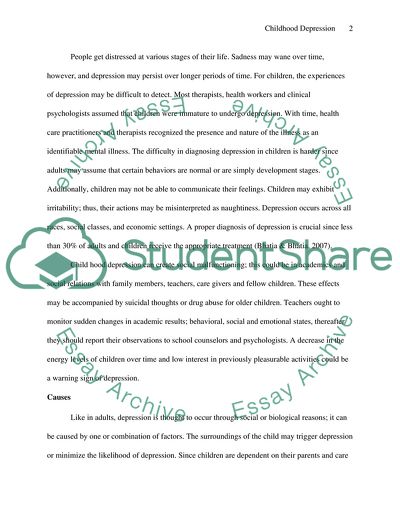Cite this document
(Childhood Depression Essay Example | Topics and Well Written Essays - 1250 words, n.d.)
Childhood Depression Essay Example | Topics and Well Written Essays - 1250 words. https://studentshare.org/education/1777247-depression-in-children
Childhood Depression Essay Example | Topics and Well Written Essays - 1250 words. https://studentshare.org/education/1777247-depression-in-children
(Childhood Depression Essay Example | Topics and Well Written Essays - 1250 Words)
Childhood Depression Essay Example | Topics and Well Written Essays - 1250 Words. https://studentshare.org/education/1777247-depression-in-children.
Childhood Depression Essay Example | Topics and Well Written Essays - 1250 Words. https://studentshare.org/education/1777247-depression-in-children.
“Childhood Depression Essay Example | Topics and Well Written Essays - 1250 Words”. https://studentshare.org/education/1777247-depression-in-children.


